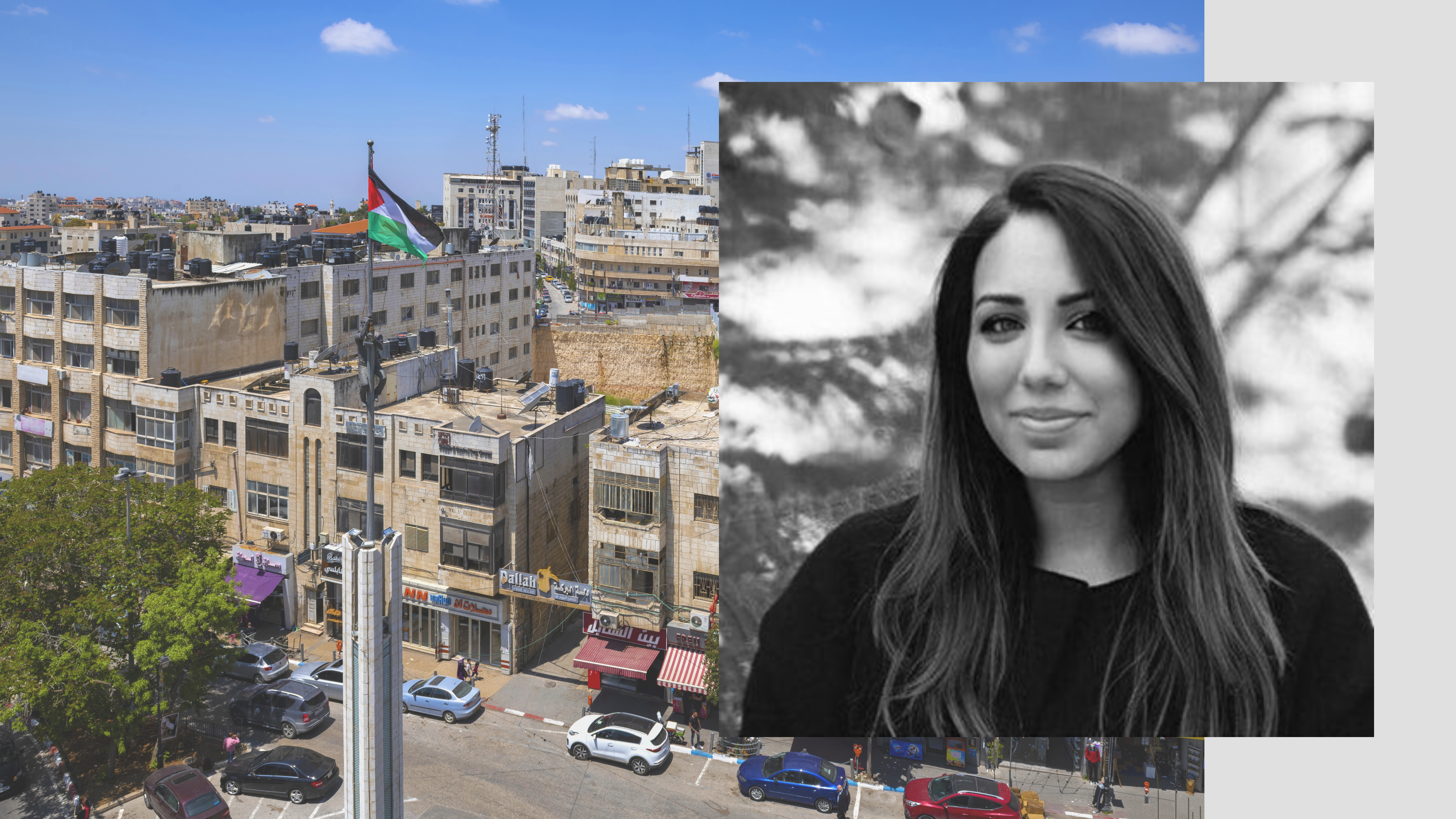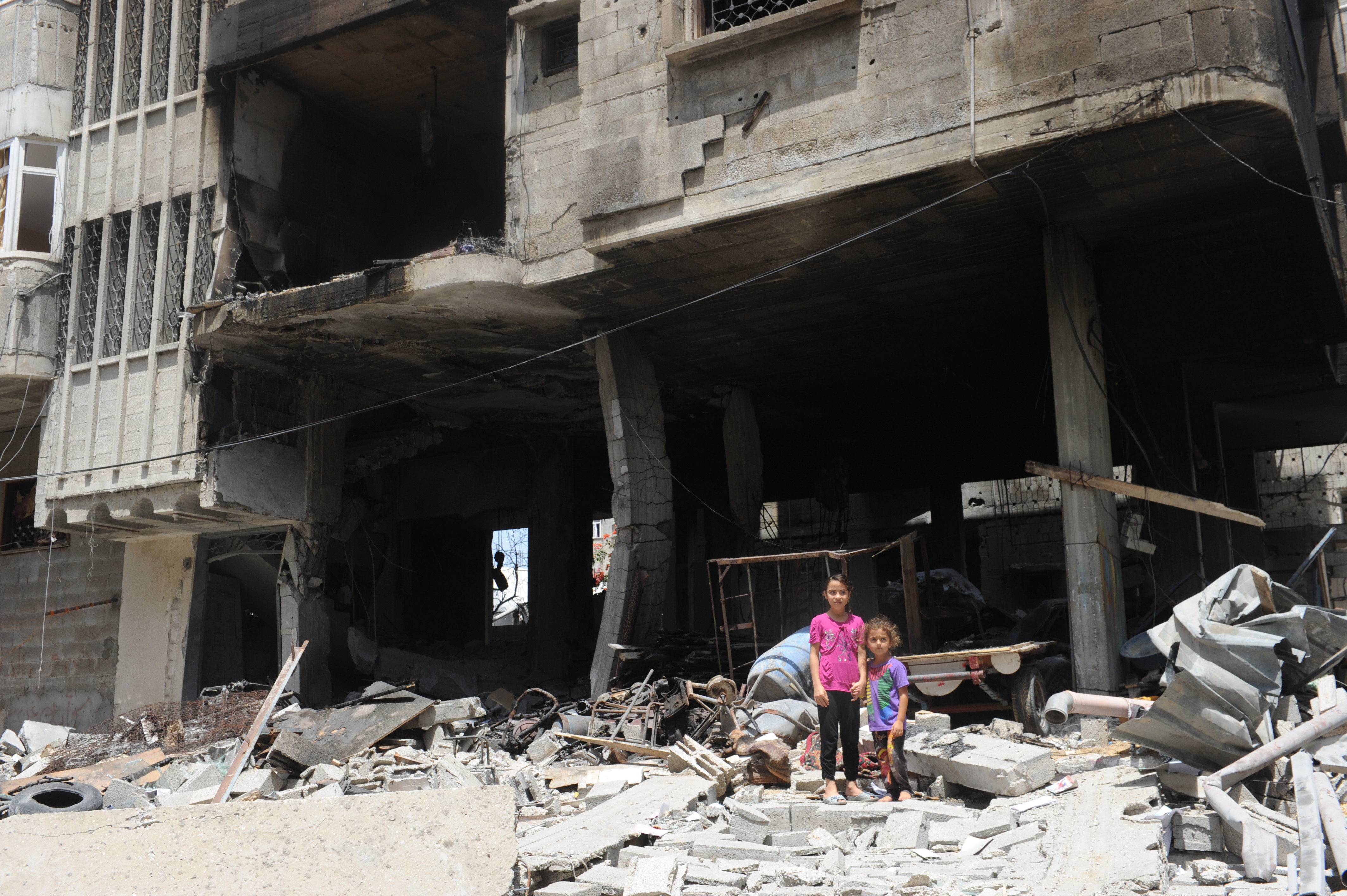
Palestine
Palestine performs in the mid-range in the Participation and Rights categories of the Global State of Democracy framework, while scoring low in Representation and Rule of Law. It falls among the bottom 25 per cent of countries in a majority of factors of the framework. Compared to five years prior, Palestine has seen significant declines in Access to Justice, Civil Liberties, Judicial Independence, Predictable Enforcement and Civil Society. It has a heavily aid-dependent economy, with high poverty and unemployment rates. Israeli control of Palestinian Authority tax revenues, land, resources, and movement restricts market access and jobs, straining the economy.
Palestine is comprised of two geographically separated areas of land, the West Bank and Gaza Strip; the GSoD Indices data cover only the West Bank.
Palestine has never existed as a fully realized nation-state, as foreign powers have for centuries been the dominant sovereign authority. In 1948, despite rejection by Arab states, the UN General Assembly adopted Resolution 181, which created the State of Israel on 77 per cent of Palestinian land. Palestinians faced mass expulsion and ethnic cleansing (Nakba). Subsequent Arab-Israeli wars led to the displacement of millions of Palestinians, resulting in a large refugee population.
Today, around 60 per cent of Palestinian territories remain under full Israeli control. These areas are particularly subject to constant military presence, frequent arrests and detentions, ongoing violence, severe movement restrictions, and widespread destruction of Palestinian property. In this context, the quest for independent statehood and redress for historical injustices continues to be a central driving force in Palestinian politics. Yet, the state on offer to Palestine has been rapidly diminishing due to the expansion of Israel’s colonial settlement project and the persistent occupation, factors that which profoundly impact every aspect of Palestinian life.
Palestinian politics are divided between two main factions: Fatah and Hamas. Fatah is a secular nationalist party that leads the Palestine Liberation Organization (PLO), a coalition of political parties formed in the 1960s to represent Palestinians at international fora. Domestically, it controls the Palestinian Authority, a limited self-governing body created in 1994 by the Oslo Accords to govern parts of the West Bank and Gaza. However, since 2007, Gaza has been governed by Hamas, an Islamist group. The split in Palestine’s governance occurred after the 2006 legislative elections, which were won by Hamas but disputed by Fatah. No national elections have been held since.
The political context has been marked by institutional stagnation, including postponed presidential elections, an increasingly strong executive, corruption, and a vast security apparatus used to repress dissent. Since the start of the war in Gaza in 2023, the devastating impacts of the war have also come to the fore, including the destruction of infrastructure, food insecurity, disease, the curtailment of press freedom and forceful displacement of almost the entire population of Gaza.
Palestine scores low on the GSoD’s measure of Gender Equality, with women underrepresented in the labour market and politics. Despite an active civil society advocating for LGBTQIA+ rights, the community faces stigma and violence.
Looking ahead, democratic progress in Palestine depends fundamentally on the cessation of Israel’s ongoing war in Gaza and the end of occupation. Once these realities change, other critical issues to watch will include the unification of its governance, the resumption of national elections, and any advancement toward full sovereign statehood.
Last Updated: June 2025
https://www.idea.int/democracytracker/
November 2025
New municipal election law introduces PLO allegiance requirement
On 19 November, President Mahmoud Abbas issued a decree-law introducing a new framework for the Palestinian municipal elections scheduled for April 2026. A key provision of the law requires all candidates wishing to participate in the elections to sign a declaration of allegiance to the political programme of the Palestine Liberation Organisation (PLO). This requirement has raised concerns as rights groups warn that it effectively excludes political actors and organizations outside the PLO framework from participating in the elections. A total of five factions—including four that are formally affiliated with the PLO (the Popular Front for the Liberation of Palestine, the Democratic Front for the Liberation of Palestine, the Palestine People’s Party, and the Palestinian Democratic Union) and one independent faction, the Palestinian National Initiative (Al-Mubadara)—have rejected the requirement and called for the withdrawal of the presidential decree.
Sources: Central Elections Commission, Independent Commission for Human Rights, Al Quds
October 2025
New Gaza ceasefire takes effect with hostage-prisoners exchange

On 10 October, a new ceasefire between Israel and Hamas took effect in Gaza, following the signing of a deal based on a 'peace plan' proposed by the United States. The agreement's first phase focuses on halting military operations, partially withdrawing Israeli troops, and allowing humanitarian aid to enter Gaza. As part of this phase, on 13 October, Hamas released all 20 remaining living Israeli hostages and Israel released nearly 2,000 Palestinian prisoners. Despite these steps, violence resumed between 19 and 31 October, with Israeli strikes in Gaza killing at least 148 Palestinians. Israel stated the strikes were in response to Hamas’s delays in returning the remains of some of the hostages who died in Gaza. Although the deal also planned for roughly 600 aid trucks to be allowed to enter Gaza daily, reports stated that only about 94 trucks per day crossed between 10 and 21 October, leaving humanitarian needs critical. It remains uncertain whether the ceasefire will hold, and whether it will reduce violence and enable the delivery of aid.
Sources: WAFA News Agency, Associated Press (1), The National, Associated Press (2), Council on Foreign Relations, France 24, The Guardian
August 2025
Global hunger monitor declares state of famine in Gaza Governorate
On 22 August, the Integrated Food Security Phase Classification (IPC), a global standard for assessing food insecurity, announced that its Famine Review Committee (FRC) determined that the Gaza Governorate is experiencing famine. The FRC concluded that this famine, which is the highest level on the IPC’s Acute Food Insecurity scale, is man-made, resulting from the ongoing war in Gaza. The IPC also projected the famine to spread to other areas in Gaza (Deir al- Balah and Khan Younis governorates) by the end of September. An area is classified as experiencing famine when there is clear evidence that at least two of the three key thresholds (starvation, acute malnutrition, and mortality), have been met, and broader evidence strongly suggests that the third threshold has likely been reached. This marks the fifth time the IPC has made such a determination since its establishment in 2004.
Sources: Integrated Food Security Phase Classification, Palestinian News and Information Agency, Reuters
July 2025
UN Commission of Inquiry concludes that Israel has committed genocide in Gaza

An independent UN Commission of Inquiry concluded in a report released on 16 September that Israel has committed acts of genocide against Palestinians in Gaza between 7 October 2023 and 31 July 2025. The Commission further found that senior Israeli officials, namely President Isaac Herzog, Prime Minister Benjamin Netanyahu and former Defence Minister Yoav Gallant, incited these acts with impunity, noting that a lack of domestic investigation and prosecution has failed to ‘prevent and punish the commission of the crime’. Specifically, the Commission determined that Israel perpetrated four of the five genocidal acts defined in the 1948 Genocide Convention: (1) killing members of the targeted group; (2) causing serious bodily or mental harm; (3) deliberately inflicting conditions of life calculated to bring about the group’s destruction in whole or in part; and (4) imposing measures intended to prevent births within the group.
*Since the impact of these events are felt primarily in Palestine, they are coded in the entries for the latter. While they are not coded for Israel, it is Israeli action that causes the effects on democracy in Palestine.
Sources: UN Independent International Commission of Inquiry on the Occupied Palestinian Territory, including East Jerusalem, and Israel, Middle East Eye, Reuters
See all event reports for this country
Global ranking per category of democratic performance in 2024
Basic Information
Human Rights Treaties
Performance by category over the last 6 months
Blogs
Global State of Democracy Indices
Hover over the trend lines to see the exact data points across the years
Factors of Democratic Performance Over Time
Use the slider below to see how democratic performance has changed over time

